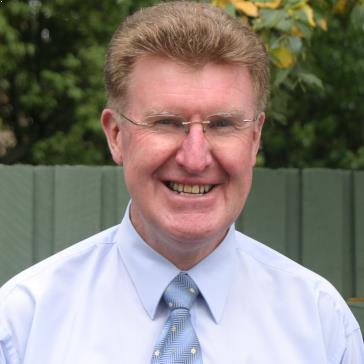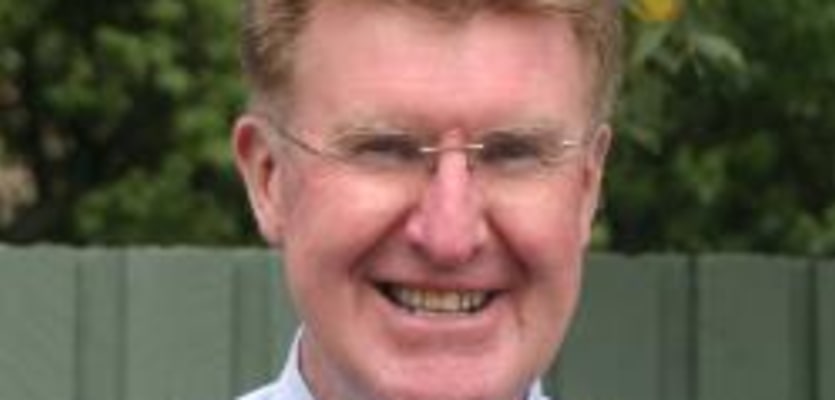Would you ever reveal a reserve price before an auction? Victorian agent John Keating has been using this method since 2003 and says it’s helped him win business.
A lot of people know that I’ve long campaigned for auction rules reform to introduce a transparent auction model that would require agents to publish their vendors’ reserve prices ahead of auctions. The proposal has copped some criticism, but my experience is that adding maximum transparency to the auction process would have big benefits for the reputation of the profession and the integrity of auctions, and achieve better results for our vendors.
Our office has promoted a published reserve price auction model since 2003, when we sold for a vendor related to an employee. I said to the vendor, “Your home is probably worth about $210,000 to $225,000. How would you feel if we agreed on a reserve price now and advertised the reserve price to provide transparency to the market?”
The vendor liked the idea, so we agreed on and published a reserve price of $220,000. The auction went really well: we had six bidders and sold for $242,000. We received much positive comment from buyers who were glad to know they weren’t having their time wasted by underquoting.
We’ve since fine-tuned the model and done about 100 auctions with a declared reserve price and achieved sales up to $3.5 million.
 Trustworthiness
Trustworthiness
By establishing trust with buyers, it means we don’t become off-side with losing bidders for future properties. We also gain the respect of potential vendors, because many have told us that if we are being honest and transparent with buyers, we are probably also going to be honest with them. People are smart and they ask around, particularly when they’re making one of the biggest financial decisions of their life. We’re certain that his system has helped us win business, although there’s no way we can quantify how much.
Buyer education
Given that this auction method is – sadly – unusual, it means we have to educate people. Let’s say we’re selling a home worth about $750,000. We’ll explain to buyers, “We’ve sat down with the vendors and worked out the price at which they’d sell – not their dream price, but a price at which they’d definitely sell if that was the best bid. They would like to get more than $750,000 – they’re hoping to get towards $770,000 or $780,000 – but they will sell at $750,000. So if that price is within your budget, come and have a look, and if you like the property you can do your due diligence, building, pest and legals knowing the price point at which the property will definitely be on the market.”
In this scenario, if bidding goes above $750,000, it’s open and transparent competition, with the final price determined by purchasers – as it should be. If bidding doesn’t reach $750,000, the vendors have to ask themselves if they’re holding out for too much and whether they shouldn’t settle for less.
Price representation options
Some vendors have reservations when we tell them about our transparent auction model. If auction is the best way to sell this hypothetical $750,000 property, we explain that we have three price representation options. We can advertise without any price guide, but this is not advisable because the public don’t like it. We also say we don’t like using a price range, because that’s misleading and deceptive conduct unless the vendor is prepared to sell at the bottom of the quoted price range.
We then explain that if we’re going to spend, say, $5,000 to $7,500 to be paid by the vendors on marketing, we don’t want to waste their money by attracting people who aren’t the right buyers – and if the reserve is realistic, it will act like a buyer magnet. We say to vendors that if they’re hoping to get more than $800,000 because that’s what the other agents have said – unfortunately the evidence indicates that it probably won’t happen, and they’ve possibly been over-quoted to in order to win their listing.
If we put time in with vendors in setting a realistic reserve at the start, the process becomes self-regulating because vendors nominate the price point at which they will sell. Smart vendors realise that the lower they set their reserve, the more interest their property will generate. Some might say that’s underquoting, but it’s not, because the vendors are prepared to sell at the nominated reserve price.
No system is perfect
Of course, no system is perfect. The only weakness with a declared reserve price auction is if you think a buyer will possibly pay more, there’s nothing you can do because the reserve is set and cannot be increased. But that’s no different to a property advertised by private sale for $750,000 and you know you have a buyer who would pay more. Or it’s no different to a normal auction where the agent knows a bidder is keen, the property gets declared on the market and then there are no more bids, even though the buyer probably would've paid more.
The current system with insidious underquoting has brought our profession into disrepute and is despised by many buyers because prices are too often manipulated. In a case where a property is worth about $750,000, there are too many rogue agents who high-ball the vendor and say that they will probably get $800,000 to $850,000. The agent who wins the business will then say the best way to get good interest is to quote the property low from, say, $650,000 to $700,000, and then ‘step quote’ up during the marketing period.
Auction best practice
An auction system predicated on deceit to prospective vendors and then further deceit to prospective buyers cannot be expected to be sustainable.
Many agents in Victoria are critical of our open reserve model and attempt to discredit it, and I’ve had great difficulty trying to engage agents, auctioneers and the REIV to publicly debate it. Some agents say it’s a ridiculous idea and will destroy the auction system. It won’t. If more buyers are attracted to buy at auctions, that can only be beneficial for vendors. I’d love to see this auction system become the norm, but it probably won’t happen unless it gets legislated.
For many agents and auctioneers to accept a declared reserve price auction model, it would require a 180-degree turn in their understanding of auction best practice and the learning of new skills.
If the profession adopted a declared reserve price auction model, we’d have a trusted and fair auction system and the number of auction sales would increase, maybe even double. You’d also have more accurate and reliable sales information available for everybody following the market, from first home buyers to the Reserve Bank. And we would have a much more respected profession.
John Keating runs an independent boutique agency at Woodend in Victoria’s Macedon Ranges. He has more than 40 years’ experience as an auctioneer and was chairman of the REIV Ethics Committee from 2000 to 2008. In 2015 he was a finalist in the Industry Thought Leader category at the Real Estate Business Awards.







You are not authorised to post comments.
Comments will undergo moderation before they get published.